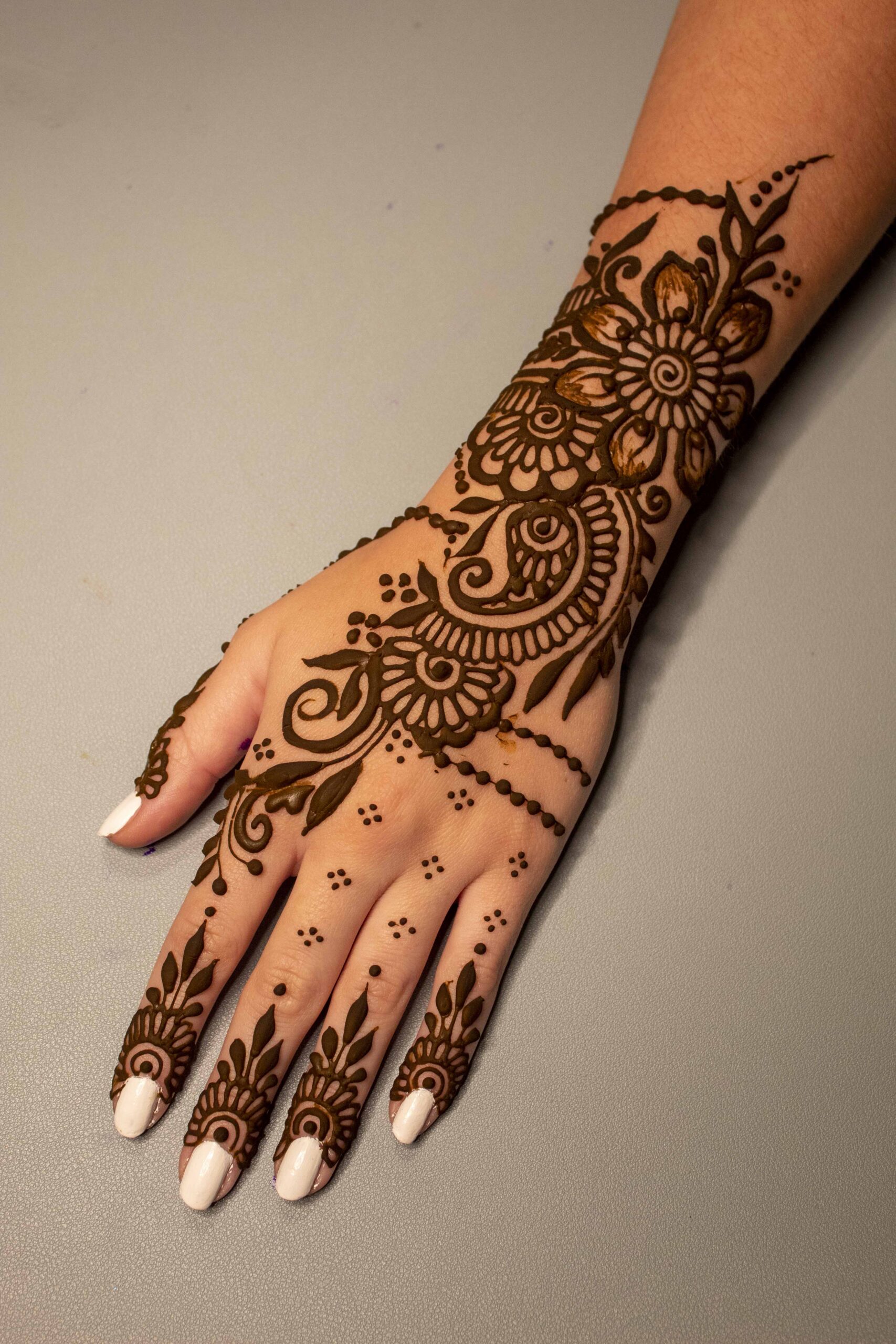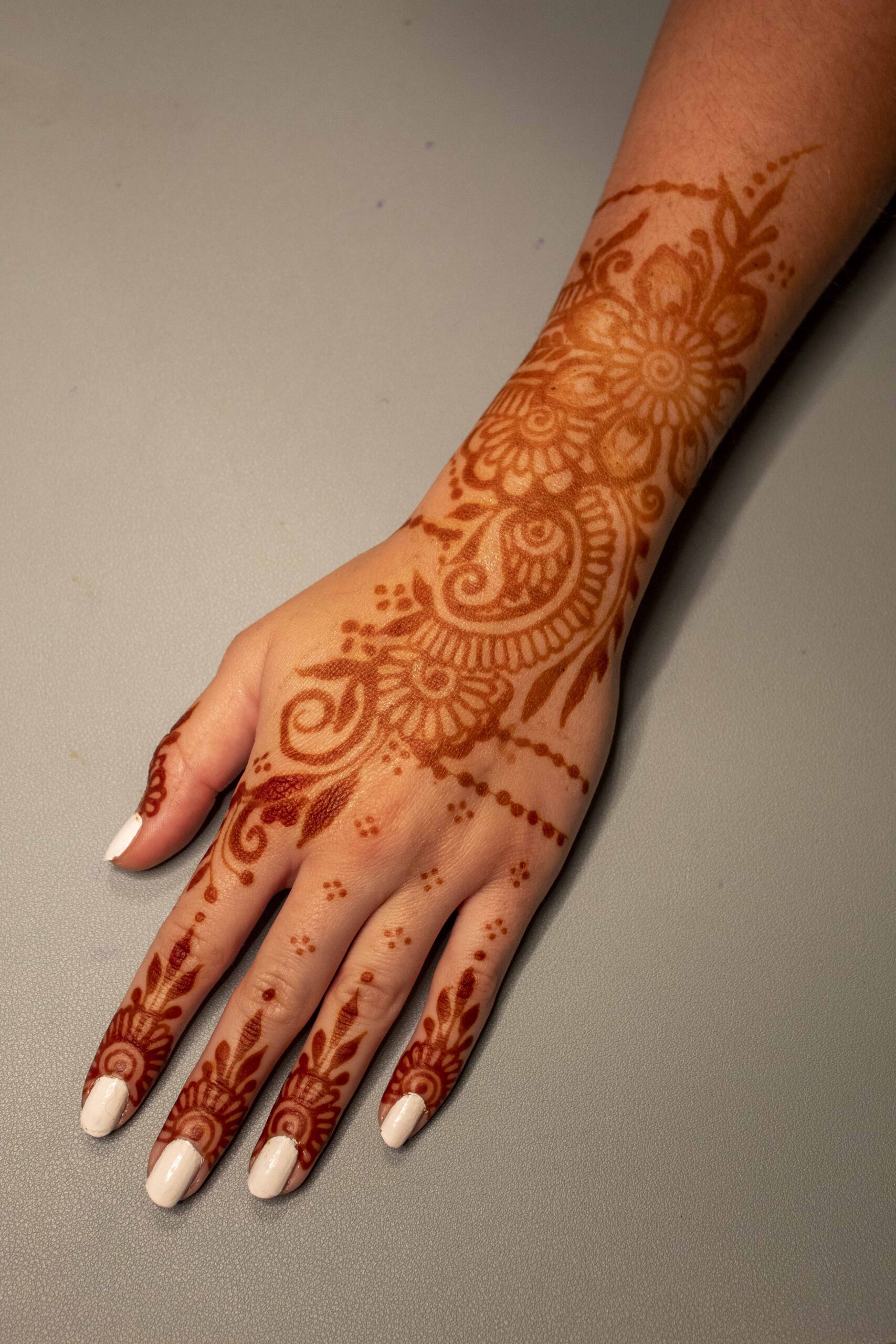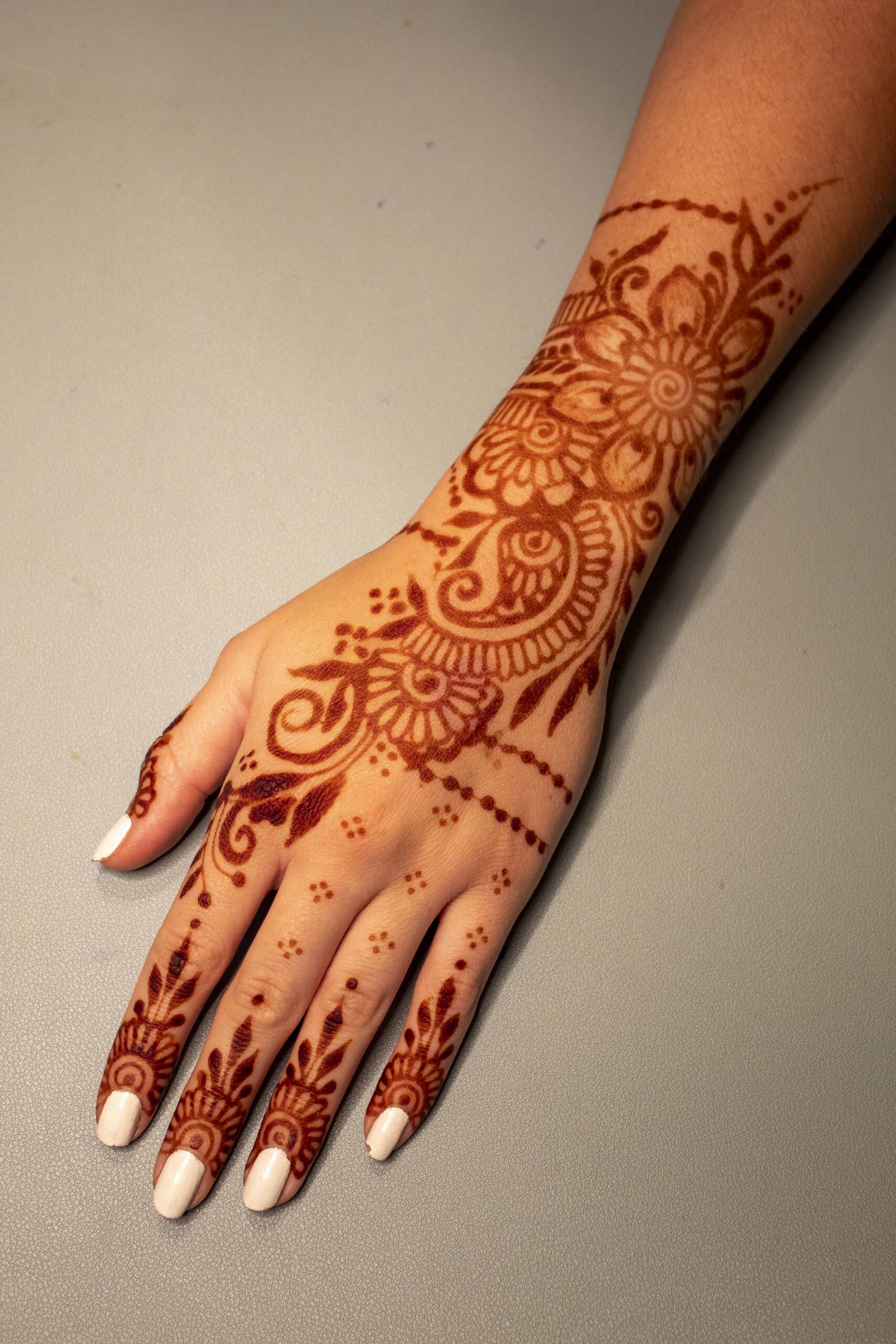Lawsonia Inermis
Natural henna or Mehndi, is derived from a plant called Lawsonia Inermis, which is a plant that is grown in tropical and subtropical regions of northern Africa, southern Asia, and Australia. It does not have a more popular name other than sometimes being referred to as “the henna plant”. Once the henna plant has matured, the leaves are dried, crushed, sifted into a fine powder.
From Powder to Paste
I make my henna paste at home starting with the henna powder and adding sugar, eucalyptus oil, and water. These 4 ingredients mixed together make the henna paste that I can apply to your skin which will create the stain. Henna is perishable, therefore I make my henna fresh for each client. Making my own henna has taken many years to master and using the right ingredients and process has made my henna rich and smooth so I can create beautiful designs.
The Henna Staining Process
Hover over the photos to see the care instructions or click here for a summary.
Henna Care Instructions
Please follow the care instructions for the darkest stain and longevity of the design. Do NOT get the paste wet. Avoid getting sweaty. Avoid pools (chlorine), other chemicals or too much water exposure for the best stain.
- Henna gives a cooling sensation from the eucalyptus oil.
- Let past dry 15-30 minutes on a dry hot day.
- Leave the paste on 3-6 hours.
- The longer you leave the paste on the better the stain result. I recommend letting the paste fall off naturally (take it off before bed depending on the time it was applied).
- Apply heat with a heating pad / stay warm.
- The warmer the body temperature, the darker the stain will be. Applying direct heat (like a heating pad) may result in a darker / richer stain).
- Scrape/rub the paste off.
- Apply Vaseline / coconut oil / castor oil (any oil except baby oil) to your stain.
- Do this before and after your showers to ensure you stain will last as long as possible.
- Your stain will darken over the next 24-48 hours.
I use the best quality products, therefore you will always see a great stain. The best stain depends on your aftercare and external factors like natural body oils, medications, hormones, etc. Henna stains best on warmer areas of your body, and where there is thicker skin (ie. fingers, palms, feet). Avoid pools, chemicals, and exposure to water for long perios of time as this will life your stain quicker than usual.



